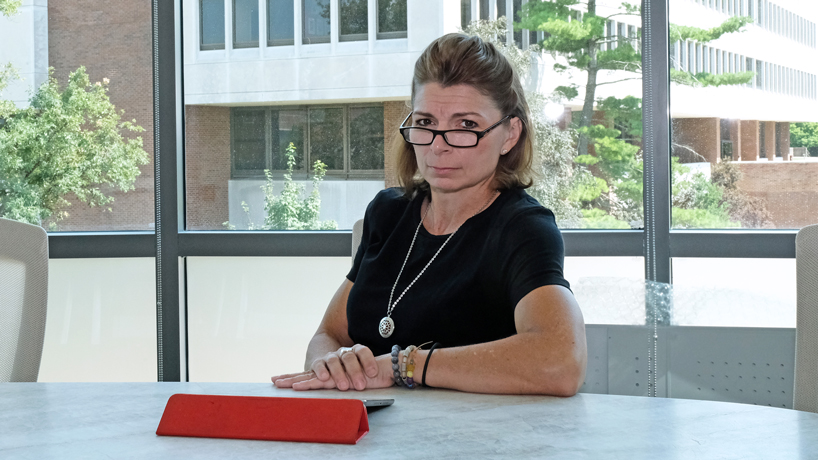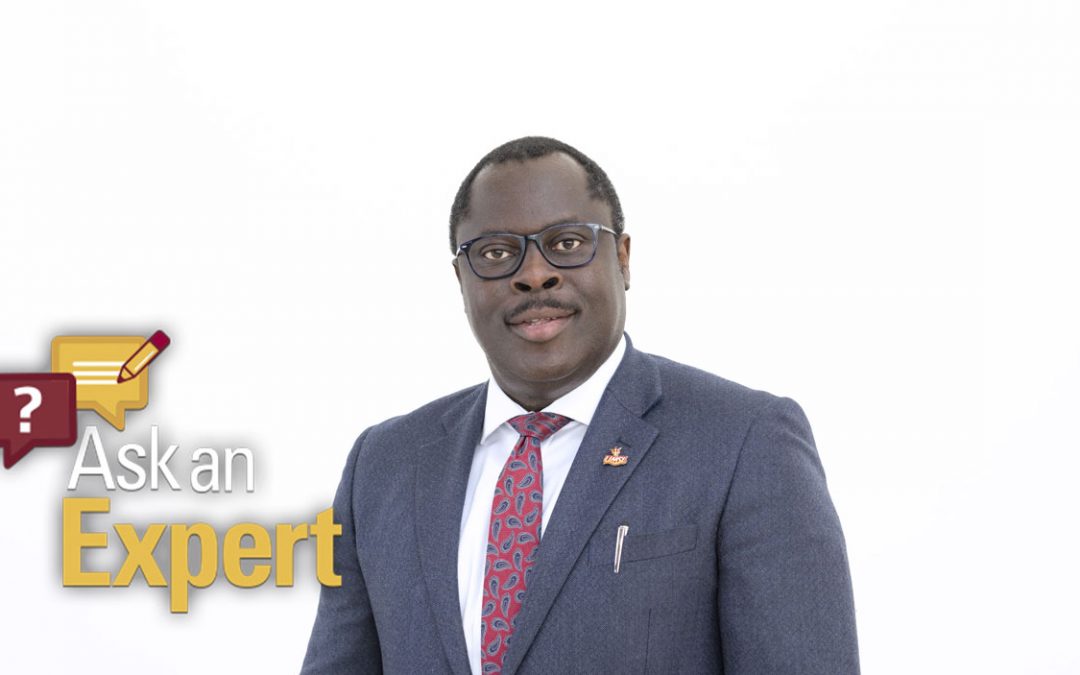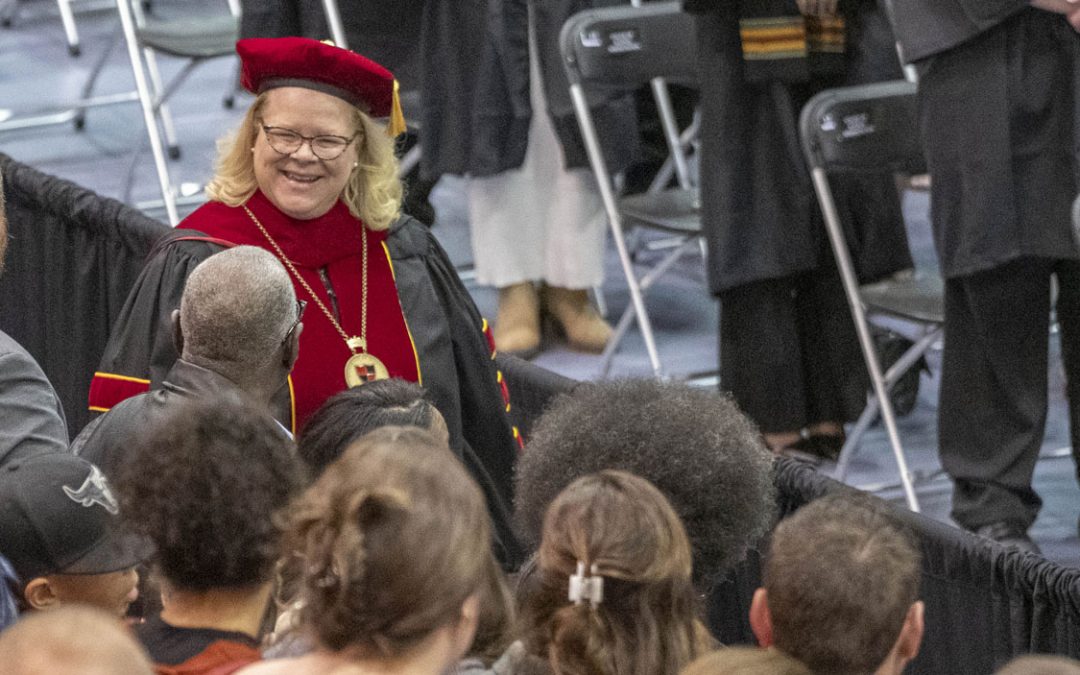
Michele Meckfessel, assistant professor of accounting, co-authored the “The Not So Pokey Hokies” case study, which received the 2017 American Taxation Association Teaching Innovation Award. (Photo by August Jennewein)
It started with a simple yet frustrating question.
“As a runner, how do you deal with race fees on your taxes?”
On a typical day, perhaps Michele Meckfessel, assistant professor of accounting at the University of Missouri–St. Louis, wouldn’t be irritated by the inquiry. But coming from her sister who immediately dismissed the advice, it made a lasting and award-winning impact.
Complaining of the conversation to her research partners, Mollie Adams and Kerry Inger, Meckfessel realized she wasn’t alone. Adams experienced a similar incident with a friend, and while airing their frustrations, the researchers realized there were additional layers to the question.
While in a majority of instances racing expenses are not tax deductible, the trio began analyzing situations where expenses could be deducted. All runners in their own right, the friends realized they stumbled upon their next project – a case study tasking students to identify tax issues related to members of a fictional running club.
“That’s how it all got started – out of a desire to work on another project and frustration with folks close to us who were not taking our tax advice,” Meckfessel said. “We were like, ‘Seriously? Some people would consider us tax experts and yet you’re telling us we don’t know what we’re talking about.’”
As Virginia Tech alumnae, the team had a perfect name for the case and the running club: “The Not So Pokey Hokies.”
All 12 taxpayers presented in the case are based on real people who participate in a range of running activities, including charitable race participation, nonprofit running organization management, nationally competitive racing, pacing, competitive team membership, coaching and collegiate sports.
Specific concepts explore hobby versus for-profit activity classification, independent contractor versus employee role classification, income recognition, expense deductibility, charitable contribution deductions and athletic scholarship taxation.
The catch: students will find limited court cases on running, forcing critical thinking and extended research to address underlying issues.
“It’s the realization that you might have a very specific venue for your particular taxpayer, but those issues relate to a wide variety of taxpayers,” Meckfessel said. “If students think about the activities that are behind the actual details, they will find the similarities.”
Meckfessel incorporates the case in her Tax Research course each semester and often smiles at the initial student response.
“Many come back complaining that they can’t find any court cases on running,” Meckfessel said. “If you look at the fact patterns, you’re going to be able to connect the dots. At the end, they come back around and are like, ‘OK – that’s actually really cool.’”
Other tax experts seem to share the students’ admiration as the case earned the 2017 American Taxation Association Teaching Innovation Award. True to form, the submission and acceptance for this award came a bit unexpectedly.
Meckfessel, Adams and Inger presented the case at an American Taxation Association mid-year meeting before it was published in Issues in Accounting Education. Afterward, an audience member approached them and recommended they apply for the ATA award. They went for it, and after a period of silence and review of other impressive cases, the team assumed they hadn’t won.
Then one evening in May, Meckfessel’s bike ride was interrupted by a surge of text notifications coming to her watch. Fearing the consequences of reading and biking, she finished her ride before switching to her phone and deciphering the long chain of celebratory emojis.
“I had to go all the way back through this text stream to see the original ‘We won!’ text,” Meckfessel recalled. “But I still didn’t know what they were referring to. It was so funny because my watch was just exploding, and I couldn’t read anything.”
May continued to be an exciting month for the researchers as they received word to revise and resubmit a journal article on the links between restatements and tax aggressiveness while also developing their next project idea.















